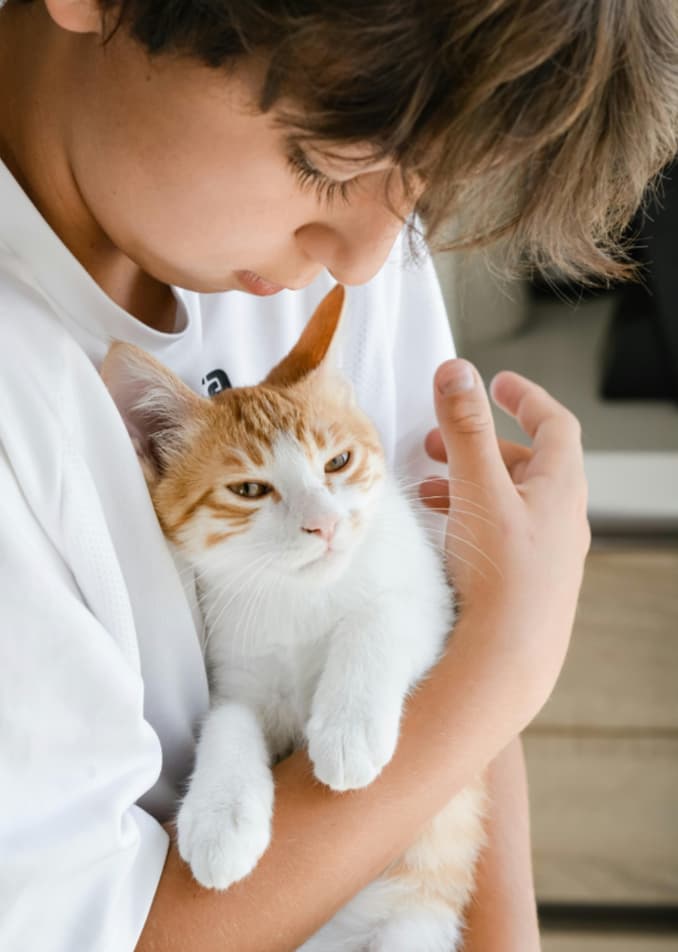Telling a child about the loss of a pet is no easy task. When that time does come in your life, though, it’s vital to approach those formative conversations wisely and with ease. It will be a sensitive and emotional experience but that doesn’t mean it’s not important for you and for your children. Here are some steps to consider when approaching a conversation like this:
- Encourage Expression of Feelings: Letting your child know that it’s okay to feel sad, upset, or even angry about the loss is a must. This Reassurance that their feelings are normal and that you are there to support them is crucial to a good conversation about a hard topic such as pet loss.
- Listen and Validate: Give your child the space to talk about their emotions and memories of their pet. Understand their feelings by acknowledging their sadness and offering them comfort. It’s important they know you are here with them in this sadness, but you will get through it together.
- Provide Comfort: Offering physical comfort like hugs, cuddles, and quality time together is essential for your child’s journey through pet loss. Again, it’s important they know you are there with them in their sadness and that is shown in the time you spend with them over the coming days.
- Be Honest and Direct: Using clear and simple language appropriate for your child’s age will make it easier for your child to conceptualize what is happening. Depending on their age avoid using phrases that may confuse them, like “went to sleep” or “went away.” The truth might hurt in the moment but it’s important your child really knows what happened to their pet.
- Answer Questions Honestly: Be prepared to answer many questions your child may have about death and what happens to their pet. Using language appropriate for their age, listening to understand, and how you respond with support are equally important. It’s normal for your child to have questions and your answers should not only be truthful but comforting in this hard time for them.
- Be Patient: Understand that grief is a process that takes time. Your child may continue to ask questions or express sadness throughout the coming days and weeks after your initial conversation with them. This is normal for your child and it’s crucial to keep approaching these conversations in the same fashion. Not only acknowledging their pain but also showing your love and support is how your child grows from this experience.
No one ever said these conversations were easy. But they are important to you and your child’s growth through your loss and mourning. By approaching these conversations with honesty, empathy, and patience, you can help your child navigate this difficult experience and begin to heal from the loss of their pet together.

